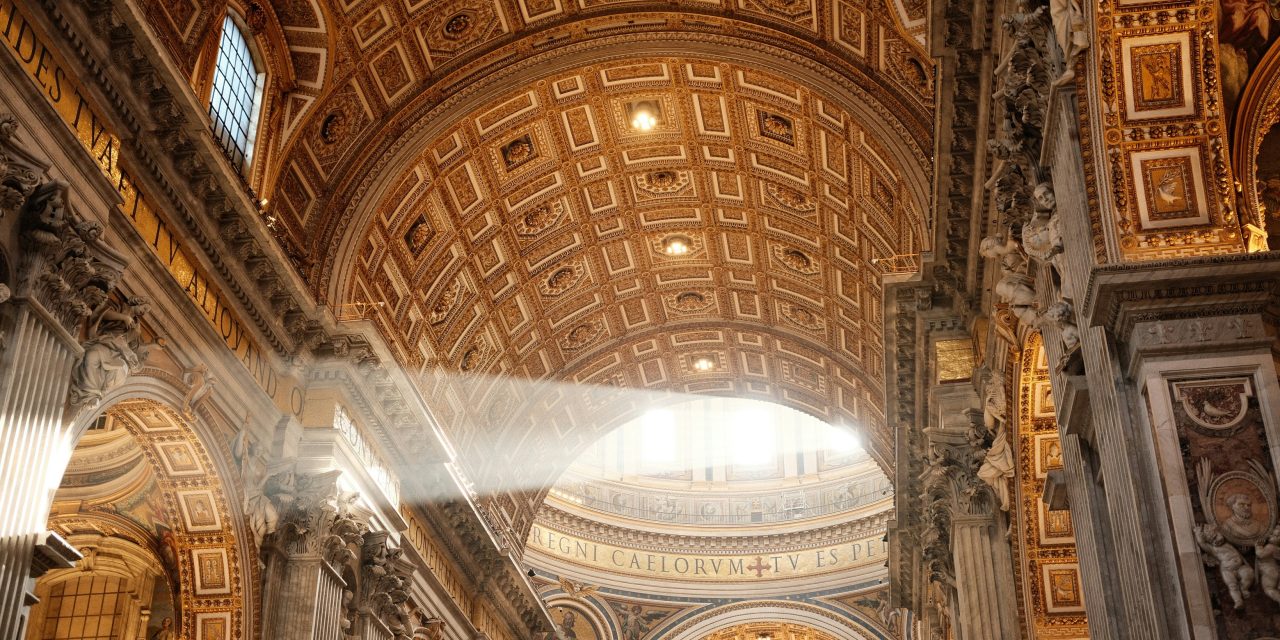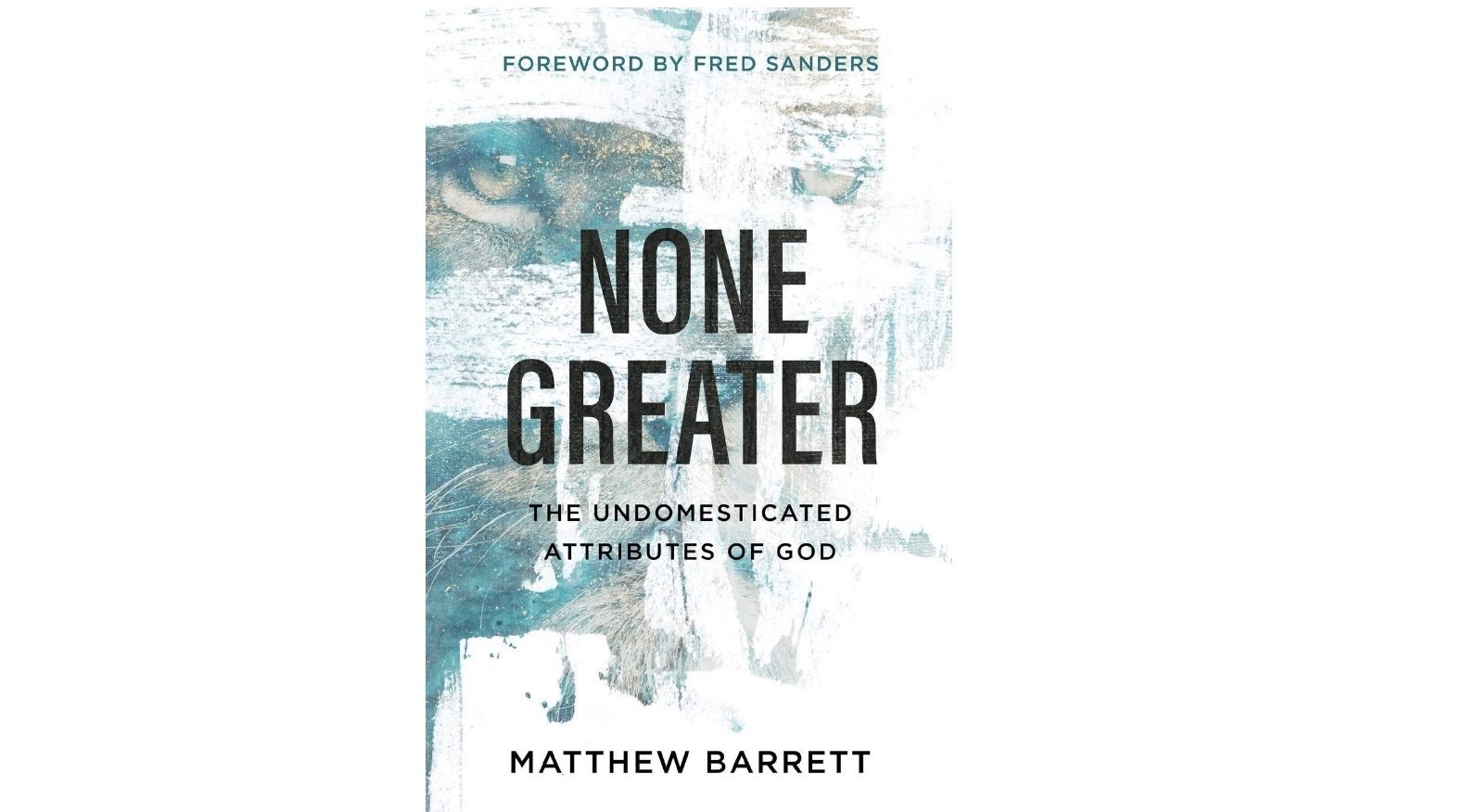Photo by Bethany Young on Unsplash
The Death of a Pope
On April 21, 2025, Jorge Mario Bergoglio, best known by the chosen name Pope Francis, died at 88.
As of the writing of this article, the world is now waiting for a new “Vicar of Christ” to be adorned with his royal garb and blasphemously sit on his throne as the “Head of the visible Church”.
In light of the death of Francis, and the whole world setting their eyes to the Vatican to see who the next sinner will be to try and usurp the authority of Christ, I would like to examine some of the biblical claims the Roman Catholic Church makes to validate the Papacy and show you that Scripture not only does not support these claims, but flatly contradicts their blasphemy.
Jesus Establishes the Papacy (Or Not)
Let’s examine the claims of the Papacy from Scripture. After all, I’m just a good little Baptist boy. I have no authority to appeal to but the very words of God.
The Roman Catholic Church has clung to Matthew 16:18 as the proof-text for the Papacy and all of its supposed authority being given to Peter. Their assertion is that Jesus crowns Peter as the first Pope in history, which all Papal authority derives from.
This is fundamental to the claims of the modern Papacy. If Peter was not the first Pope, the entire house of cards falls. There is no Apostolic succession, there is no special office of Pope with ultimate authority over Christ’s church.
This claim of Peter’s Papacy is both biblically and historically laughable. The writers of Scripture neither wrote about nor observed any such office.
So, let’s look at this airtight evidence of Peter’s Papal preeminence in Matthew 16:
“And I tell you, you are Peter, and on this rock I will build my church, and the gates of hell shall not prevail against it.”
Matthew 16:18
Anytime we read something, especially when handling God’s holy and infallible word, we must employ basic reading skills and consider the context of passages.
It starts getting really hairy when we just read isolated verses without any consideration for what surrounds them, and rely on a sinful man to be the final interpreter of them, as most cults often do.
“Trust us. We know what it really means”. That’s so nice of them, you don’t even have to waste time reading the very words breathed out by God (2 Timothy 3:16), they’ll go ahead and just tell you what it says and means. Nothing to see here.
Scripture is not subject to man; man is subject to Scripture.
Let’s use those reading skills and jump back to the beginning of this section, to verses 13-15:
Now when Jesus came into the district of Caesarea Philippi, he asked his disciples, “Who do people say that the Son of Man is?” And they said, “Some say John the Baptist, others say Elijah, and others Jeremiah or one of the prophets.” He said to them, “But who do you say that I am?”
So we see here Christ is prompting His disciples for a confession of who He truly is, which is everything. Who you believe Jesus Christ is has eternal consequences.
We read the answer to that question in verse 16:
Simon Peter replied, “You are the Christ, the Son of the living God.”
Amen, Peter, my brother in Christ! Boy, he is a smart guy. Someone should crown him as the pope! He figured it out all by himself. Or, wait… Verse 17:
And Jesus answered him, “Blessed are you, Simon Bar-Jonah! For flesh and blood has not revealed this to you, but my Father who is in heaven.
Actually, never mind. The Father revealed it to him. Anyway.
It is in response to this confession that we find Christ’s words in verses, 17 and 18, verse 18 again being the supposed foundation of the Papacy in the New Testament:
And I tell you, you are Peter, and on this rock I will build my church, and the gates of hell shall not prevail against it.
Now here’s the thing: Petros (Πέτρος) is masculine and means “stone” or “small rock.” Petra (πέτρα), on the other hand, is feminine and refers to a large rock, a bedrock, a foundational slab. In other words, the two terms are related but not identical — and the difference is intentional.
Petros = Peter.
Petra = The rock on which Christ builds His church.
If Jesus meant to say Peter was the rock, He could have just said, “You are Peter, and on you I will build my church.” But He didn’t. He changed the term — from Petros to petra. Why? Because the foundation of the church isn’t Peter himself; it’s the truth Peter just confessed.
After all, Jesus does go on to call the “new Pope” Satan 5 verses later. This is obvious proof that Christ was a Reformed Baptist, because we often say the same thing regarding the Pope.
Peter then goes on later to deny the Savior three times.
Peter was not a very firm foundation. Though he is worthy of much honor and respect, and was used mightily by the Lord.
Peter’s claim— “You are the Christ, the Son of the living God” however, is an incredibly solid foundation. It is the very foundation upon which the church is built.
Jesus is the Christ.
Paul Rebukes the Pope
The Apostle Paul, in the epistle to the Galatians says:
11 But when Cephas came to Antioch, I opposed him to his face, because he stood condemned.
Galatians 2:11
Wow. That would get you burned at the stake 500 years ago, Paul. What could he possibly be thinking publicly rebuking and condemning the Vicar of Christ on earth?
Well, simply put, he didn’t. He recognizes Peter to be a sinful man under the rule and reign of Christ, he has the authority of an Apostle of God, which is certainly nothing to wink at, but Peter has no special authority above Paul or any other Apostle or Shepherd.
Our brother Peter was separating himself from the Gentiles in Antioch and eating exclusively with the Jews. Jewish custom (not God’s law) would have forbidden him from eating with the Gentile dogs.
This event follows Peter’s vision in Acts 10, in which God reveals to Peter that all things are clean for him to eat and to eat them with all people.
Peter himself acknowledges this after the vision in his own words, in Acts 10:28:
“And he said to them, “You yourselves know how unlawful it is for a Jew to associate with or to visit anyone of another nation, but God has shown me that I should not call any person common or unclean.”
So why would he do this in Antioch? Well, in Galatians 2:12 we see he was:
“fearing the circumcision party”.
A temptation we all face at times; the fear of man overriding our obedience to God. These Jews came from Jerusalem to Antioch and Peter just wanted to impress his bros.
Paul goes on to say that Peter and his friends were “not in step with the gospel” and condemns them.
Does this sound like the man at the head of the visible church? The Holy Father? Acting out of step with the gospel? Publicly being condemned by a supposed underling? Certainly not.
It is a slap in the face of our Lord to say Peter, or any mortal man for that matter, is the head of the visible church. That title and position are reserved exclusively for one man, who also happens to be God Himself, Jesus Christ- Colossians 1:18, Ephesians 1:22-23.
0-2 on Peter being recognized by anyone in the New Testament church as the Pope.
Let’s try one more.
James Makes the Call
Our last passage will be the final golden diamond-encrusted nail in the silk-lined Papal coffin. This will also tie some of the prior texts we looked at together nicely — it includes Peter’s vision in Acts 10, Paul’s controversy with the Judaizers in Antioch, and we see Jesus’s brother James make a call over the supposed Pope.
Let’s dive into the Jerusalem Council in Acts 15.
The issue was no small matter. Certain men were insisting, “Unless you are circumcised according to the custom of Moses, you cannot be saved” (Acts 15:1). Paul and Barnabas had no small dissension and debate with them, so they were sent up to Jerusalem to settle the matter with the Apostles and Elders.
Peter speaks first. He reminds the council how God used him to bring the gospel to the Gentiles — a reference to his mission to Cornelius back in Acts 10. He says in Acts 15:8-11:
“And God, who knows the heart, bore witness to them, by giving them the Holy Spirit just as he did to us, and he made no distinction between us and them, having cleansed their hearts by faith. Now, therefore, why are you putting God to the test by placing a yoke on the neck of the disciples that neither our fathers nor we have been able to bear? But we believe that we will be saved through the grace of the Lord Jesus, just as they will”
It’s a bold and beautiful gospel statement. But note — Peter does not issue a binding declaration. He does not pull rank or speak ex cathedra. He doesn’t even speak last.
After Peter, Paul and Barnabas report the signs and wonders God had done among the Gentiles through their ministry.
And then James speaks.
This is James, the brother of Jesus, Pastor of the Jerusalem church. He quotes the prophet Amos to show that the inclusion of the Gentiles was not a New Testament surprise, but an Old Testament promise. And then he gives the verdict:
“Therefore my judgment is that we should not trouble those of the Gentiles who turn to God, but should write to them to abstain from the things polluted by idols, and from sexual immorality, and from what has been strangled, and from blood”
Acts 15:19-20
“My judgment.” Not Peter’s. James speaks as the presiding Elder. He is not undermining Peter — he’s doing what Peter didn’t claim: making a formal ruling.
And when the letter is sent out to the churches, it doesn’t carry Peter’s seal. It reads:
“It has seemed good to the Holy Spirit and to us to lay on you no greater burden than these requirements…” (Acts 15:28).
No Papal decree. No Bishop of Rome. Just Apostles and Elders submitting to Scripture and to the Spirit.
If Peter were truly the Supreme Pontiff, this would be the strangest moment of Papal silence in history. But the early church shows no signs of Roman hierarchy. Instead, they exhibit humble, Spirit-led unity under the authority of Christ and His Word.
Peter himself would agree. He later writes:
“So I exhort the elders among you, as a fellow elder and a witness of the sufferings of Christ…” (1 Peter 5:1).
A fellow elder, not a Pope. A man standing on the same foundation as every other living stone being built into a spiritual house — with Christ Himself as the cornerstone.
Say Nope to the Pope
The Jerusalem Council doesn’t crown a Pope. It crowns the gospel.
Jesus doesn’t establish a Pope. He establishes a church.
The Apostle Paul doesn’t recognize a Pope. He rebukes a man.
The Papacy is a man-made office based upon erroneous biblical interpretation at best. Scripture knows absolutely nothing of this office and it only works against it.
The Roman Catholic Church is a false church, with a false head, with a false authority, that pushes false doctrines and a false gospel. It must be rejected. Your very soul depends on it if you find yourself within its oppressive grip.
I will leave you with the words of early 16th century reformer, William Tyndale, in reply to a Catholic Priest:
“I defy the Pope and all his laws, and if God spare my life, in the coming years, I will cause the boy that driveth the plow to know more of the Scriptures than you.”
Be the plowboy.






Very well done and readable! I appreciate the flow of thought how it solidified the post.
Much appreciated, brother! Here’s to a new woke pope that will drive many more souls out of his hellish empire and into the arms of the Savior.